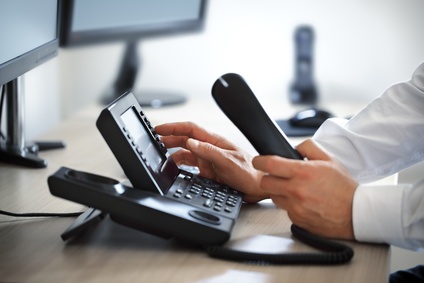It may seem like a no-brainer since audio conferencing and teleconferences have been around for ages and is now being viewed as a preferable way of communication. However, you’d be surprised at the number of faux-pas that are routinely committed on a business call. There are also small oversights that lead to ineffectiveness, inefficient habits, and other tiny things that can make or break your conferencing ways. Without teleconference tips to guide you, you won't be able to make a difference in your team and your company.
Here are a few tips to consider when hosting a conference call:
1. Having a Courteous Host
Consider your participants and corporate culture when scheduling a conference call. What time zones are involved, how long will the call be, etc? During long calls, for example, schedule a short recess or allow participants to take a short break as needed. Remind your participants not to place their line on "HOLD" as many offices play hold music which will pipe into the conference.
2. Using the Right Equipment
Avoid cellular and cordless phones because of annoying static, and speakerphones as they pick up background noise and sound like speaking in a tunnel. Also, some speakerphones don't allow you to speak and hear at the same time, effectively "clipping off" parts of the conversation.
3. Planning Ahead
Determine the date, start time, and number of participants. Be aware of time zone differences.
4. Notifying the Participants
Let all conference participants know the date and how they can access the teleconference.
Provide them with your dial-in number and access codes to enter the conference, include in your e-mail notification: moderator's name, start and estimated end times, subject and agenda. Also, let participants know of any preparation needed prior to the audio conference.
5. Setting the Audio Conference Goal
1. Pinpoint the objectives you wish to accomplish for the meeting.
2. Provide an agenda in advance.
3. Try to limit the agenda to three or four topics, and let the participants know how much time you intend to spend on each.
6. Eliminating Ambient Noise
Eliminate as much as possible the need to shuffle papers/ materials when you are speaking. Some speakerphone mics will pick up these sounds and it becomes very distracting.
7. Increasing Attendance
1. Email Pre-Notification - Remind your callers about the upcoming call to which they have already been invited.
2. Dial-Out Participants - You can connect each participant personally by utilizing dial-out features. This is extremely useful for international callers.
8. Ending the Call
When ending your teleconference, always be clear and to the point. Thank everyone for their participation and be sure everyone realizes the meeting is officially over.
9. Don't Forget Time Zones when Scheduling Conference Calls
If participants from across the country or abroad are going to be included, schedule the event in the time zone most convenient to the majority of participants. When assigning the start time make sure you notify your participants what time zone your scheduled time reflects.
10. Recording the Teleconference
Recording your conference calls should be a habit by now. Recorded conference calls can bring their own disadvantages. They can act as an official document. They can also be used as a reference in future meetings and even decision-making sessions. Best of all, teleconference recordings are a great tool to keep everyone in the loop. Even if some missed out on meetings, the recording can easily provide all the information they need.


no especially if they are gaiinng top honors .grow into your personality .you'll eventually find your path just remember, you will never, and I do mean never, have to see the losers (and by that I mean the popular' people in high school after you graduate)! Sometimes I know if feels as though high school is the center of your world .the world widens so much after you get the hell out of there1